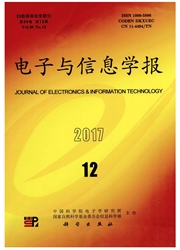

 中文摘要:
中文摘要:
微支付交易具有交易量极大且单次交易额极小的特点,使得复杂的认证协议不适用于微支付。Micali等人(2002)提出的基于概率选择微支付方案,把微支付聚合成宏支付,大幅提高了微支付的效率。Liu-Yan在(2013)提出了保证所有参与者的数据融入概率选择结果的生成,而且使得所有参与者可以验证结果的公平性。然而,Liu-Yan方案中银行可能获得额外利益,从而破坏了协议的公平性。该文首先分析了Liu-Yan方案的安全威胁,并且以"1个用户-1个商家"的模型代替Liu-Yan方案中"大量用户-1个商家"的模型,以数据承诺技术为基础保障结果的公平性与可验证性。
 英文摘要:
英文摘要:
Due to the large transaction number and tiny value in micropayment, it is not practical to authenticate each transaction. Micali et al.(2002) propose a lottery-based micropayment to integrate multiple micropayment to one macro-payment that is worth using complicated authentication. Liu-Yan scheme(2013) guarantees the result is verifiable by involving all participants' data. However, there still exists a flaw that the malicious bank maybe obtain the illegal benefit by controlling the specific purchaser not be selected to execute the macro-payment, moreover, this attack can not be detected. In this paper, the flaw is firstly described, then, an improved version is proposed. Specifically the model "multiple purchasers to 1 merchant"in Liu-Yan's scheme is replaced with a new model "1 purchaser to 1 merchant", which guarantees the fairness and verifiability for all using the commitment technique.
 同期刊论文项目
同期刊论文项目
 同项目期刊论文
同项目期刊论文
 期刊信息
期刊信息
